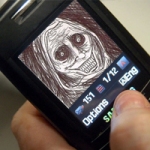It is the season for Ghosts. We’ve just finished celebrating the spirits and Ghosts of All Saints Day, All Hallows Eve and All Souls Day. Soon we will be visited by the Ghosts of Christmas.
Information technology has its own Ghosts, and we government technologists have our special subspecies of technology Ghosts.
We all know about technology Ghosts. The story of the ill-fated Microsoft Courier tablet, doomed to be stillborn, has been haunting the news feeds again lately. HP’s Touchpad and (maybe) WebOS were given up to an existence someplace between the living and the dead (tech Zombiedom?) earlier this year. Whole technology companies and technologies have become Ghosts or are destined for slow, lingering deaths and a future ghoulish existence. WiMax, once the darling of 4G wireless networks, is all-but-dead in favor of its big brother long-term-evolution or LTE. Steve Jobs is widely hailed for bringing Apple computer back from a Ghostlike doom; his role creating the Ghost of NeXt is less celebrated. And companies like Digital Equipment Corporation (DEC), once the #2 computer company worldwide, fell into the dustbin of tech history, being purchased by Compaq which in turn was gobbled up by HP. It sure seems like RIM and its successful BlackBerrys may be headed down a similar path.
As I mentioned earlier, Government has both Ghosts-in-common with commercial companies and our own unique set of Ghosts.
Most government computers are haunted by the Ghost called Windows XP. Ten years old, declared “dead” by Microsoft, Windows XP is still a workhorse in many agencies, as we struggle to make sure our myriad of applications will work with Windows 7, and we try to find the dollars to upgrade. At least the Windows XP Ghost will be fondly remembered, unlike Windows Vista, which hopefully has a home someplace in a tech Hades. Mainframe computers, and especially the IBM mainframes, are alive and well, working hard in some places. In governments, however, too often they house almost-Ghostlike tax systemsor scheduling and management systems for Courts, applications which are old and creaky but mainstays for some cities, counties and states.
Some applications are wraiths, staying long beyond their normal useful lives, because they are both functional and beloved by users. Northrup-Grumman’s PRC is a public safety computer-aided dispatch system, “green screen” and command-line driven. Dispatchers and field offers became familiar to its arcane but quick-to-type commands, and memorized them. Newer dispatch systems were Windows and gooey (Graphical User Interface, a term I never liked) based. But to do the same one-line-of-text PRC function on a newer GUI system often would involve opening multiple windows, drop down boxes, address verification functions and other tasks which vastly lengthened the time to dispatch a police unit or fire call. It took dispatchers some time and training to exorcise these Ghosts.
Analog public safety radio networks are another Ghost which many cities, counties and regions use today. The counties of the central Puget Sound, including Seattle, presently have older Motorola analog public safety radio systems – in our case with over 20,000 vehicle-mounted and handheld radios. These systems are functional and critical to dispatching fire, police and emergency medical officers to every 911 call and incident. Yet they are based upon 6809 chip architecture. The 6809 chip was used in the Tandy Color Computer, which was in its heyday around 1978-1980. Talk about Ghosts – what other technology from 1978 is still functional today? Such systems won’t be supported for much longer (just like Windows XP) but upgrading or replacing them will not be easy or cheap. Yet, unlike cell phone networks, these 6809-architected systems have been extraordinarily reliable, often with 99.999% uptime.
I’m sure readers of this blog (if there are any!) probably have your own favorite technology Ghosts, many of which may still haunt your support staff and data centers – don’t hesitate to leave a comment and describe them.
And, alas, many of these Ghosts are hard to exorcise for many reasons – lack of budget for the replacement, many interfaces and dependencies, and just plain old fear of change “if it ain’t broke, don’t fix it”. In many cases that means the data used in these ancient ghostly systems is locked up, and hard to interoperate with or interface to other, more modern systems.
In a sense, I’m also a technology “Ghost” of sorts, I guess, spanning the time from the first Apple II computer to the iPad of today, from the Apollo moon landings to today when the little netbook computer I’m using for blogging and tweeting has more computing power than the entire Apollo system had in 1969.
But this last “Ghost” – Bill Schrier – is not going away anytime soon!




Our city government should get off the upgrade treadmill.
My company loves spending millions making stuff work with an old old system which they cant bare to let go of for what ever reason, only a few people left here even know how to use it.